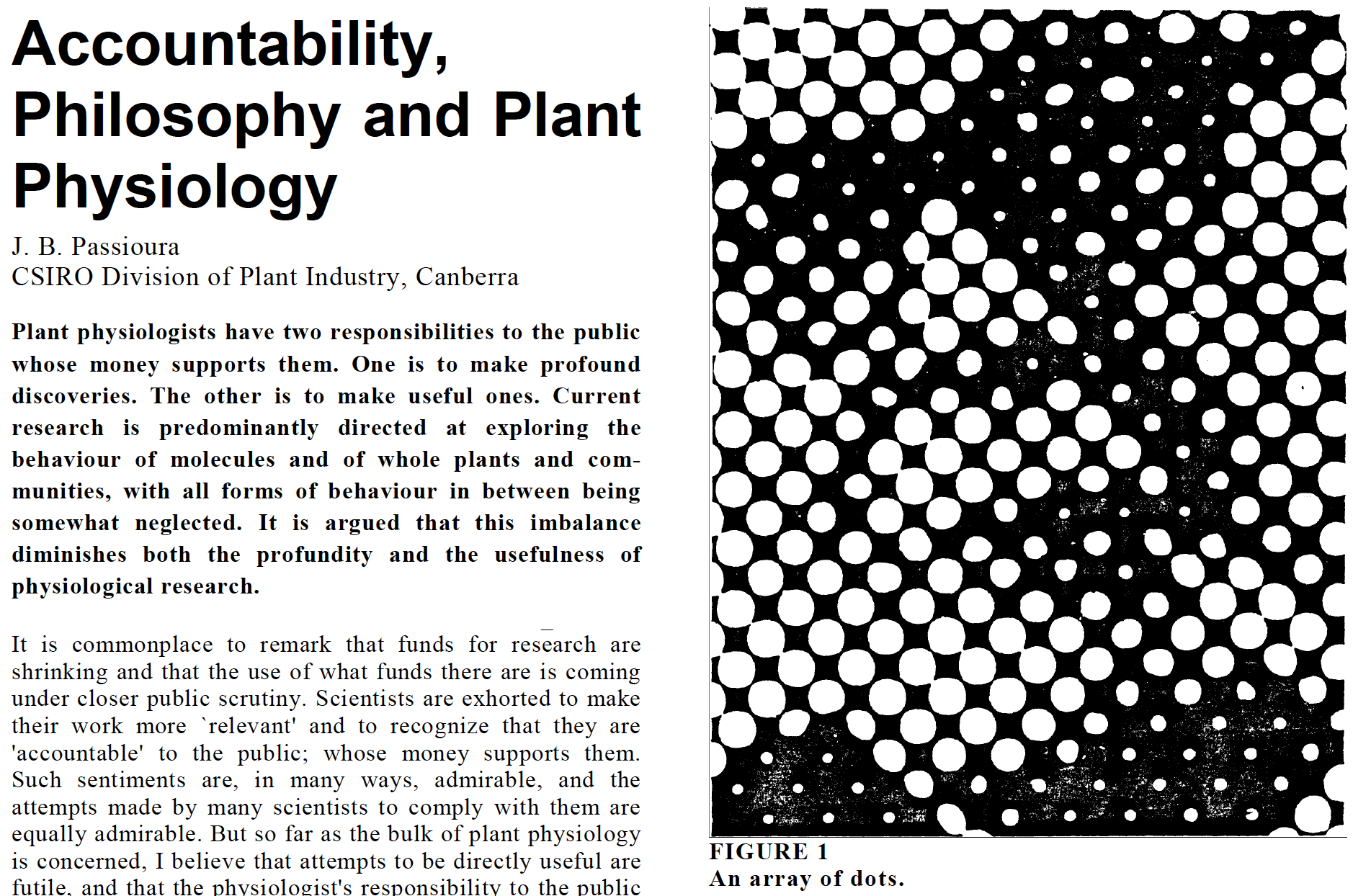Former Postdoc Cesar has started as a faculty member at Mexico’s top university! His lab will be focused on understanding the function of Intrinsically Disordered Proteins in plants. Congrats Professor! You can read more about his research program here.
Author: dinnenylab
A chalk talk on chalk talks
Today I gave a presentation on how to design an effective chalk talk. I also put together a guide that gives useful pointers for the whole process of applying for academic jobs. Hope you find the reference useful.
How to Give a Chalk Talk Guide, Version 1

José “Between the Palms” interview
Fun interview with Rishi Masalia about what we study in the lab, how I got into plant biology and what the frontiers are for studying plant-environment interactions.
José recognized as Science News SN10 Scientist to watch in 2017

José was selected as a scientist to watch by Science News. The recognition is very much appreciated, particularly for the great work that the lab has done to understand plant environment interactions and in innovating new experimental approaches. Thanks!
Cesar Cuevas-Velasquez selected as Latin American Fellow for Pew Charitable Trusts
Ten pioneering postdoctoral scientists from Latin America will each be awarded two years of funding to conduct research at laboratories and academic institutions in the United States. The 2017 fellows are from Argentina, Brazil, Chile, Colombia, and Mexico.
Among the selected fellows is Cesar Cuevas-Velasquez from the Dinneny Lab:
“The Dinneny lab explores the molecular mechanisms through which plants detect and acclimate to drought. When conditions are dry, plants rapidly activate a signaling program that allows them to conserve water. But little is known about how plants determine that water is scarce. I will develop tools for dynamically monitoring the water content inside living plant cells. Depletion of water can induce various stresses in plant cells—altering their ion balances, membrane tension, and cell wall integrity. Using an intracellular osmotic monitoring system, I hope to identify the proteins that sense these drought-induced changes and determine which genes they activate when water is in short supply. I will then inhibit the activity of these and other potential sensors and assess whether the plant’s response is disrupted—work that could add to our understanding of how organisms perceive and respond to their environment and lead to new strategies for improving the drought tolerance of crops. ”
For more information on Pew Charitable Trusts and Pew Latin American Fellows, visit their website.
Collaborative grant on FERONIA funded by NIH!
A collaborative project between our lab and the labs of David Ehrhardt and Zhiyong Wang at Carnegie Institution for Science, Department of Plant Biology has been funded by the Cellular Signaling and Regulatory Systems program at the National Institutes of Health! The project will explore the role of FERONIA in maintaining cell integrity during the salt stress response and will utilize advanced imaging and proteomics approaches to generate an integrated view of this process. The work is largely the offspring of excellent work by postdoc Wei Feng in our lab.
Passioura’s manifesto
Highly recommended: “Accountability, Philosophy and Plant Physiology” by John Passioura. As relevant today as in 1979.

GMO documentary by WUSTL students
Here is a link to an excellent recently released documentary I was part of on GMOs that includes Sarah Hake, Pam Ronald, Roger Beachy, Peter Raven and others. It was made by students at Washington University in St. Louis to inform the Chinese people about the utility and safety of genetic modification technology. Please feel free to share the link to any colleagues, friends or family you think would be interested in hearing an informed perspective.
José receives HHMI-Simons Faculty Scholar Award
I was awarded a grant from the Howard Hughes Medical Institute and Simons Foundation to study the mysteries of how plants sense and response to water. The grant will fund research in the lab over the next 5 years. I am extremely thankful to the HHMI and Simons foundation for recognizing the fantastic work that my lab has pursued. My special thanks to all the current and former post-docs and students who made this award possible!
Sebastian and Yee et al. highlighted by BBC
Ever wonder how plant roots respond to drought? You probably thought it would be super complex. Turns out a simple change in the development of shoot-borne roots explains much of the architectural differences. In a new paper from the lab published in PNAS we described how grass species suppress crown root growth to slow the extraction of water from soil and preserve this precious resource for a longer time. We think this may allow grass plants to better survive drought. Interestingly, maize and millet still make some crown roots under drought and this may make these domesticated plants more water hungry. Check out the highlight of this work in the BBC!
